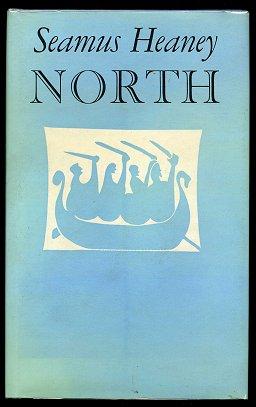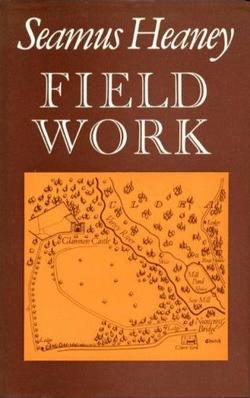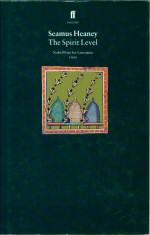Moral authority is authority premised on principles, or fundamental truths, which are independent of written, or positive, laws. As such, moral authority necessitates the existence of and adherence to truth. Because truth does not change the principles of moral authority are immutable or unchangeable, although as applied to individual circumstances the dictates of moral authority for action may vary due to the exigencies of human life. These principles, which can be of metaphysical or religious nature, are considered normative for behavior, whether they are or are not also embodied in written laws, [1] and even if the community is ignoring or violating them. [2] Therefore, the authoritativeness or force of moral authority is applied to the conscience of each individual, who is free to act according to or against its dictates. Moral authority has thus also been defined as the "fundamental assumptions that guide our perceptions of the world". [3]
An individual or a body of people who are seen as communicators of such principles but which does not have the physical power to enforce them on the unwilling are also spoken of as having or being a moral authority. An example is the Catholic Church. [4]
In the latter sense, moral authority has also been defined as "the capacity to convince others how the world should be", as opposed to epistemic authority, "the capacity to convince others of how the world is". [5]
The phrase has also been used in Australia to describe the situation when the head of a Royal commission expands the subjects being investigated, beyond the narrow focus of the commissions terms of reference.
Since the Age of Enlightenment, traditional sources of moral authority such as church or state have been viewed with increasing suspicion in Western culture: [6] perhaps indeed all claims to moral authority. [7] Instead of guides, entertainers; in place of ideals, stimulation. [8]
Expertise, or alternatively what Emmanuel Levinas called the tyranny of opinion, [9] or else an appeal to science, [10] may be looked to for alternative sources of moral authority; or there may be a postmodern revulsion from all grand narratives which might ground such narratives [11] in favour of moral relativism.
Talking of the poet, O'Donoghue argued in 2009 that Seamus Heaney still wielded some degree of moral authority, attributed in large part to his modernist reticence, lack of dogma, and capacity for self-doubt [12] – as opposed for example to the unchallenged moral authority for centuries attributed to Virgil as a norma vivendi, i.e. a norm of living. [13]
In reaction to the erosion of sources of moral authority, Late Modernity has also seen the appearance of various forms of fundamentalism, from a range of religious types to market fundamentalism. [14]
Ethics is the philosophical study of moral phenomena. Also called moral philosophy, it investigates normative questions about what people ought to do or which behavior is morally right. The main branches of ethics include normative ethics, applied ethics, and metaethics.
Foundationalism concerns philosophical theories of knowledge resting upon non-inferential justified belief, or some secure foundation of certainty such as a conclusion inferred from a basis of sound premises. The main rival of the foundationalist theory of justification is the coherence theory of justification, whereby a body of knowledge, not requiring a secure foundation, can be established by the interlocking strength of its components, like a puzzle solved without prior certainty that each small region was solved correctly.
Postmodern philosophy is a philosophical movement that arose in the second half of the 20th century as a critical response to assumptions allegedly present in modernist philosophical ideas regarding culture, identity, history, or language that were developed during the 18th-century Age of Enlightenment. Postmodernist thinkers developed concepts like différance, repetition, trace, and hyperreality to subvert "grand narratives", univocity of being, and epistemic certainty. Postmodern philosophy questions the importance of power relationships, personalization, and discourse in the "construction" of truth and world views. Many postmodernists appear to deny that an objective reality exists, and appear to deny that there are objective moral values.
Relativism is a family of philosophical views which deny claims to objectivity within a particular domain and assert that valuations in that domain are relative to the perspective of an observer or the context in which they are assessed. There are many different forms of relativism, with a great deal of variation in scope and differing degrees of controversy among them. Moral relativism encompasses the differences in moral judgments among people and cultures. Epistemic relativism holds that there are no absolute principles regarding normative belief, justification, or rationality, and that there are only relative ones. Alethic relativism is the doctrine that there are no absolute truths, i.e., that truth is always relative to some particular frame of reference, such as a language or a culture. Some forms of relativism also bear a resemblance to philosophical skepticism. Descriptive relativism seeks to describe the differences among cultures and people without evaluation, while normative relativism evaluates the word truthfulness of views within a given framework.

Seamus Justin Heaney was an Irish poet, playwright and translator. He received the 1995 Nobel Prize in Literature. Among his best-known works is Death of a Naturalist (1966), his first major published volume. American poet Robert Lowell described him as "the most important Irish poet since Yeats", and many others, including the academic John Sutherland, have said that he was "the greatest poet of our age". Robert Pinsky has stated that "with his wonderful gift of eye and ear Heaney has the gift of the story-teller." Upon his death in 2013, The Independent described him as "probably the best-known poet in the world".
In moral philosophy, deontological ethics or deontology is the normative ethical theory that the morality of an action should be based on whether that action itself is right or wrong under a series of rules and principles, rather than based on the consequences of the action. It is sometimes described as duty-, obligation-, or rule-based ethics. Deontological ethics is commonly contrasted to consequentialism, utilitarianism, virtue ethics, and pragmatic ethics. In this terminology, action is more important than the consequences.
A metanarrative is a narrative about narratives of historical meaning, experience, or knowledge, which offers a society legitimation through the anticipated completion of a master idea.

Applied philosophy is a branch of philosophy that studies philosophical problems of practical concern. The topic covers a broad spectrum of issues in environment, medicine, science, engineering, policy, law, politics, economics and education. The term was popularised in 1982 by the founding of the Society for Applied Philosophy by Brenda Almond, and its subsequent journal publication Journal of Applied Philosophy edited by Elizabeth Brake. Methods of applied philosophy are similar to other philosophical methods including questioning, dialectic, critical discussion, rational argument, systematic presentation, thought experiments and logical argumentation.
Linda Trinkaus Zagzebski is an American philosopher. She is the Emerita George Lynn Cross Research Professor, as well as Emerita Kingfisher College Chair of the Philosophy of Religion and Ethics, at the University of Oklahoma. She writes in the areas of epistemology, philosophy of religion, and virtue theory.

Virtue epistemology is a current philosophical approach to epistemology that stresses the importance of intellectual and specifically epistemic virtues. Virtue epistemology evaluates knowledge according to the properties of the persons who hold beliefs in addition to or instead of the properties of the propositions and beliefs. Some advocates of virtue epistemology also adhere to theories of virtue ethics, while others see only loose analogy between virtue in ethics and virtue in epistemology.
Metaepistemology is the branch of epistemology and metaphilosophy that studies the underlying assumptions made in debates in epistemology, including those concerning the existence and authority of epistemic facts and reasons, the nature and aim of epistemology, and the methodology of epistemology.

District and Circle is a poetry collection by Seamus Heaney, who received the 1995 Nobel Prize in Literature. It was published in 2006 and won the 2006 T. S. Eliot Prize, the most prestigious poetry award in the UK. The collection also won the Irish Times "Poetry Now Award".
Bernard O'Donoghue FRSL is a contemporary Irish poet and academic.

Wintering Out (1972) is a poetry collection by Seamus Heaney, who received the 1995 Nobel Prize in Literature.

North (1975) is a collection of poems written by Seamus Heaney, who received the 1995 Nobel Prize in Literature. It was the first of his works that directly dealt with the Troubles in Northern Ireland, and it looks frequently to the past for images and symbols relevant to the violence and political unrest of that time. Heaney has been recorded reading this collection on the Seamus Heaney Collected Poems album.

Field Work (1979) is the fifth poetry collection by Seamus Heaney, who received the 1995 Nobel Prize in Literature.

The Spirit Level is a 1996 poetry collection written by Seamus Heaney, who received the 1995 Nobel Prize in Literature. It won the poetry prize for the 1996 Whitbread Awards.
Factual relativism argues that truth is relative. According to factual relativism, facts used to justify claims are understood to be relative and subjective to the perspective of those proving or falsifying the proposition.
Feminist epistemology is an examination of epistemology from a feminist standpoint.

Miranda Fricker, FBA FAAS is a British philosopher who is Professor of Philosophy at New York University, Co-Director of the New York Institute of Philosophy, and Honorary Professor at the University of Sheffield. Fricker coined the term epistemic injustice, the concept of an injustice done against someone "specifically in their capacity as a knower", and explored the concept in her 2007 book Epistemic Injustice.